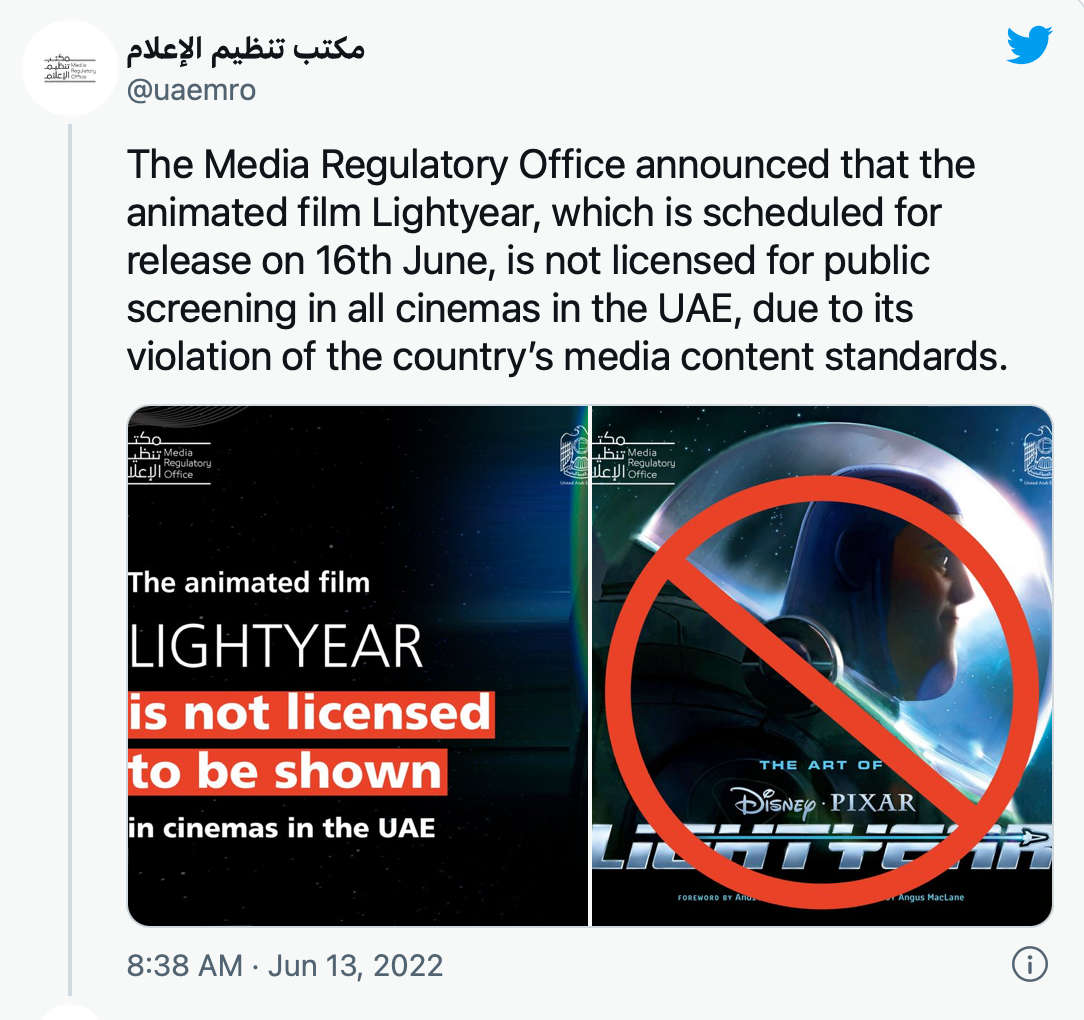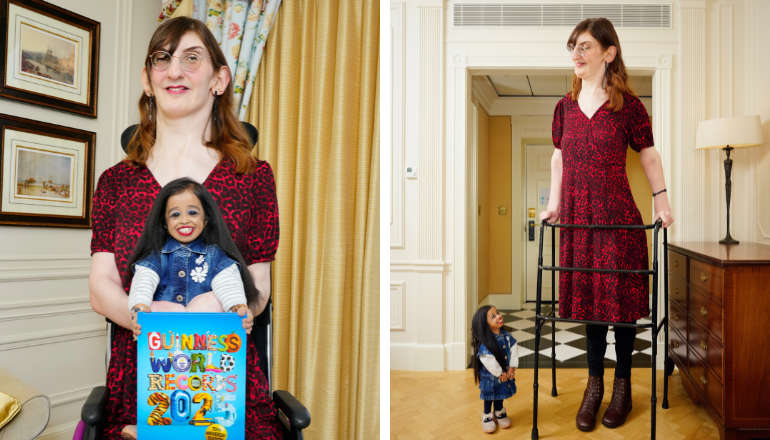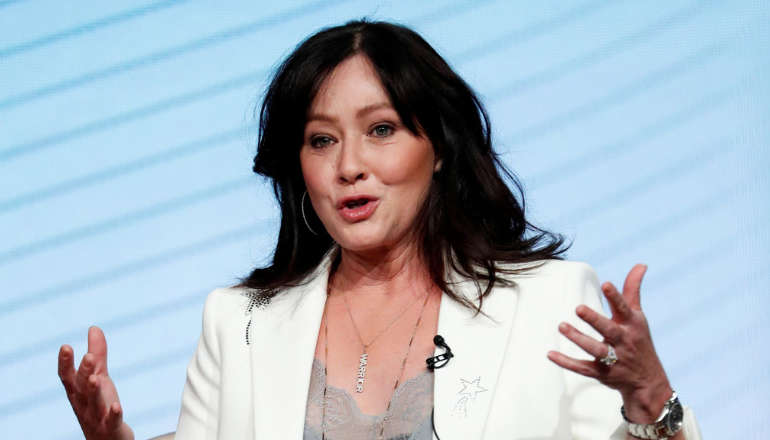
A Buzz Lightyear origin story film featuring a lesbian kiss has been banned in 14 Middle Eastern and Asian countries.
The United Arab Emirates, which includes Abu Dhabi and Dubai, announced through the Ministry of Youth and Culture's Media Regulatory Office that the film will not open there when it is released on Thursday.
In a tweet, the office said the film is "not licenced for public screening" due to its "violation of the country's media content standards".

The statement continued:
"The office confirms that all films screened in cinemas across the country are subject to follow-up and evaluation before the date of screening to the public, to ensure the safety of the circulated content according to the appropriate age classification."
However, it did not specify the supposed violation.
The UAE is a Muslim-led nation that criminalises same-sex relationships, like several other Middle East nations.
Other countries refusing to show the film include Saudi Arabia, Egypt, Indonesia, Malaysia and Lebanon.
The film's producer Galyn Susman said she assumed the movie would not be shown in China either, though Disney has not yet received an official answer from authorities there.
She told Reuters:
"We're not going to cut out anything, especially something as important as the loving and inspirational relationship that shows Buzz what he's missing by the choices that he's making, so that's not getting cut.
"It's great that we are a part of something that's making steps forward in the social inclusion capacity, but it's frustrating that there are still places that aren't where they should be."
Captain America star Chris Evans voices the character of the young Lightyear in the film, which is billed as "the definitive origin story".
The ban comes following a social media campaign featuring the Arabic hashtag "Ban Showing Lightyear in the Emirates", which gathered pace over the weekend.
The film includes female character Alisha Hawthorne, voiced by actress Uzo Aduba, who is shown kissing her female partner.
Studios have allowed censors to cut films in global distribution for content in the past, including in the Middle East market.


 World's Tallest And Shortest Women Meet For First Time To Celebrate Guinness World Records Day 2024
World's Tallest And Shortest Women Meet For First Time To Celebrate Guinness World Records Day 2024
 Shannen Doherty: Beverly Hills, 90210 Star Dies Aged 53
Shannen Doherty: Beverly Hills, 90210 Star Dies Aged 53
 Olivia Dean, Chaka Khan, Terence Trent D’Arby And Dionne Warwick Confirmed For Star-Studded Love Supreme
Olivia Dean, Chaka Khan, Terence Trent D’Arby And Dionne Warwick Confirmed For Star-Studded Love Supreme
 Boom Shakes The Room — Explosion of Colour And Happy Vibes At Spellbinding Gathering
Boom Shakes The Room — Explosion of Colour And Happy Vibes At Spellbinding Gathering
 Struggling To Sleep? New Research Names The Movies That Will Help
Struggling To Sleep? New Research Names The Movies That Will Help



 More Than 70 Driving Offences Dealt With Over Two Days On Isle Of Wight Roads
More Than 70 Driving Offences Dealt With Over Two Days On Isle Of Wight Roads
 Wightlink Technical Problems Lead To Cancellation Of All Fishbourne-Portsmouth Crossings
Wightlink Technical Problems Lead To Cancellation Of All Fishbourne-Portsmouth Crossings
 Contentious Plans For New 7,245 Square Metre Commercial Park Appealed
Contentious Plans For New 7,245 Square Metre Commercial Park Appealed
 Wightlink Crossings Cancelled Due To Engine Issues
Wightlink Crossings Cancelled Due To Engine Issues